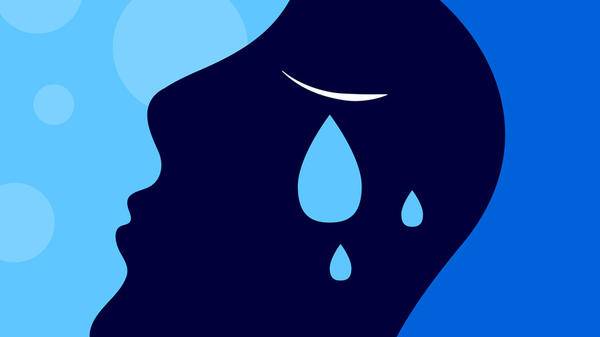The emotional challenges of critical care

Dr Stephanie Queen, Senior Vice President of Clinical Services at Air Methods, talks about the emotional challenges of working in critical care
Healthcare workers pride themselves on their ability to be empathetic but professional. Many of us calmly deliver news of adverse outcomes and prognoses to patients and family members every day, then go home to a family or personal life, and try to compartmentalize thoughts of our patients’ diseases, injuries, or deaths.
At least that’s how it may appear to others, even fellow healthcare professionals. Having worked in pediatric critical care and both adult and pediatric oncology throughout my career, I know from personal experience what it’s like to witness a child or adult dying, to hear the anguished, helpless cries of family members losing a loved one, to look other human beings in the eye and tell them their mother, father, son, daughter, or sibling isn’t going to live. These aren’t things you just ‘put out of your mind’ when you leave work. They stay with you. And, each time, take a tiny slice of your soul.
What defines a critical care healthcare worker?
What medical workers do isn’t normal. Our constant exposure to human pain, suffering, and death exacts a severe toll over time, even as we are conditioned to greet grief with a stoic calm.
I come from a military family, and I often compare the war zone I have encountered in critical care to be similar to war zones for soldiers. What we see every day changes you. It has been by far the most excruciatingly, heart wrenching, stressful job I have ever encountered through my 22 years in healthcare. Yet despite the heartache I have experienced, it has also been the most rewarding, life-fulfilling and stimulating job I have ever had.
What defines a critical care personality is typically someone who is an overachiever, a multitasker, compassionate, incredibly intelligent, type A and a very direct communicator. These characteristics define what I have always witnessed to be the best of the best in our healthcare industry.
When approached by someone who finds out that you work in critical care, we often attempt to respond to their comments by saying things like: “Oh you could do it, let’s not talk about me, what do you do for work?”
I have also had someone look at me with sheer terror and say: “How do you work with dying patients day in and day out? You must hate being surrounded by that every day.”
My response to them is typically, “Well, I am not sure I could do your job day in and day out.” To each his own is my philosophy. Critical care clinicians are unsung heroes who go to battle every day, despite those we can’t save. What truly brings us back is the ones we do.
The bravery of those facing death
Many times, I have heard clinicians say, ‘they will never survive’ and weeks later, the patient walks out of the hospital or visits the crew that saved them back at their base. I learned early on to never say never, as patients will often surprise you.
I have been honored to witness both children and adults take their last breath. It’s odd to say, but those moments are as beautiful as birth. I’m not sure I can explain the bravery of those facing death. Children specifically. I have discussed with a seven-year-old that the cancer they were diagnosed with was going to ultimately take their life and they expressed to me that it was ok and that they were ready. I have had adults tell me that they if they could do it all over again, they wouldn’t make any changes as this was God’s way of them leaving a legacy. These intimate moments are what many don’t see when dealing with critically ill individuals.
I have cried with families as we removed their loved one from life support. I have been a sense of strength for moms, dads, siblings, and family members alike who couldn’t hold it together as the most important person in their life was dying or clinging to life. I have walked and worked alongside the broken. I have hugged mothers and fathers and sat with them on the floor as we all cried about the fact that we couldn’t save their child. I have held them until they stopped shaking from tears. I have swaddled dead babies and carried them close to my chest as walked to the morgue.

The struggles of expressing grief as a critical care worker
There’s been little focus on the experiences of critical care staff who deal with both anticipated, premature or unexpected death. When a patient is lost, medical workers often feel sad or inadequate depending on how the patient died. They also can feel guilt, which can compound grief.
The grief borne by medical professionals is manifested in many ways, including anxiety, fatigue, restlessness, irritability, lack of focus, denial, shock, anger, depression, loss of appetite, nightmares, anhedonia, and substance abuse. And that’s only a partial list.
It is often assumed that clinical staff are equipped to deal with the stressful and tragic situations they routinely face, but is there really any adequate preparation for dealing with so much suffering? Medical professionals may feel awkward expressing emotions of grief, and some even start to believe they selected the wrong profession. It’s regrettable, but not surprising, that 55 per cent of nurses say they wouldn’t recommend the job to others.
How can critical care workers ease the burden of grief?
What can we do to ease this burden of grief? How do we take care of one another and how do we place back the pieces that are taken out of our souls when we care for others?
Let’s start with ourselves, because self care is the most important and proactive step we can take:
- Be kind to yourself
- Recognize that you need to rest, eat, exercise, etc.
- Spend time on things that bring you joy
- Talk it out/express yourself to someone you trust
- LAUGH
- Make time to acknowledge the work you do
- Breathe
- Shower
- Get fresh air
- Let light into your life.
Given the crushing weight of grief and its relentless presence in the lives of critical care workers, the suggestions above may seem inadequate and even trite. But they’re not. Rather, they are simple but effective ways they can reconnect with and replenish themselves.
The benefit of empathy and the issue with sympathy
For the loved ones of clinicians who are struggling with grief, it is important to acknowledge what they are going through and to offer support. That support should come in the form of listening and conveying empathy – which has value – rather than sympathy, which can be counterproductive.
As social worker and author Brené Brown explains, imagine hearing someone shouting from the bottom of a deep well, “It’s dark and scary down here, I’m overwhelmed.” You peer over the edge and say, “I see you,” then climb down, confident that you can get back out. The message of your action is, “I know what it is like down here and you’re not alone.” That’s empathy. Sympathy, in contrast, is looking over the edge of the well and saying, “Oh, that looks terrible. So sorry.” And then you keep walking.
As healthcare professionals, our instinct is to ‘fix it’. But empathy isn’t about fixing. It’s about the courageous choice to be with someone during their darkness, not racing to turn on the light so we ‘feel better’.
I have never been prouder than I am today of where I work and who I work alongside. I am honored to work among some of the most brilliant and talented individuals the healthcare industry has to offer. I may never be able to put into words the trauma of caring for complete strangers. How every heartache that is placed in your hands, every story that touches you, every hug that you give to a family, takes a slice from your soul.
When I say this job is hard, it is
When you see a healthcare worker who works in either emergency medical services or critical care and you hear where they work or what they do and you think to yourself, it takes a really special person to work in a place like that. I want you to know the truth.
You are right.
It does.

January 2022
Issue
The latest medical equipment carried onboard HEMS and fixed-wing air ambulances that is making a difference to patient outcomes; sensor technology that is changing the SAR sector; medical transport billing; facing grief and trauma as a first responder; and drone swarms enhancing SAR provision.
Dr Stephanie Queen
Dr Stephanie Queen is the Chief Nursing Officer and Senior Vice President for Clinical Services at Air Methods Corporation. Stephanie joined Air Methods in July of 2020 and is an experienced nurse executive with 20 years of healthcare experience. Stephanie received her Doctorate from Vanderbilt Universtiy and an MBA from Grand Valley State University and is a leader with Landing critical deals for over 30 years. experience in achieving outstanding outcomes.